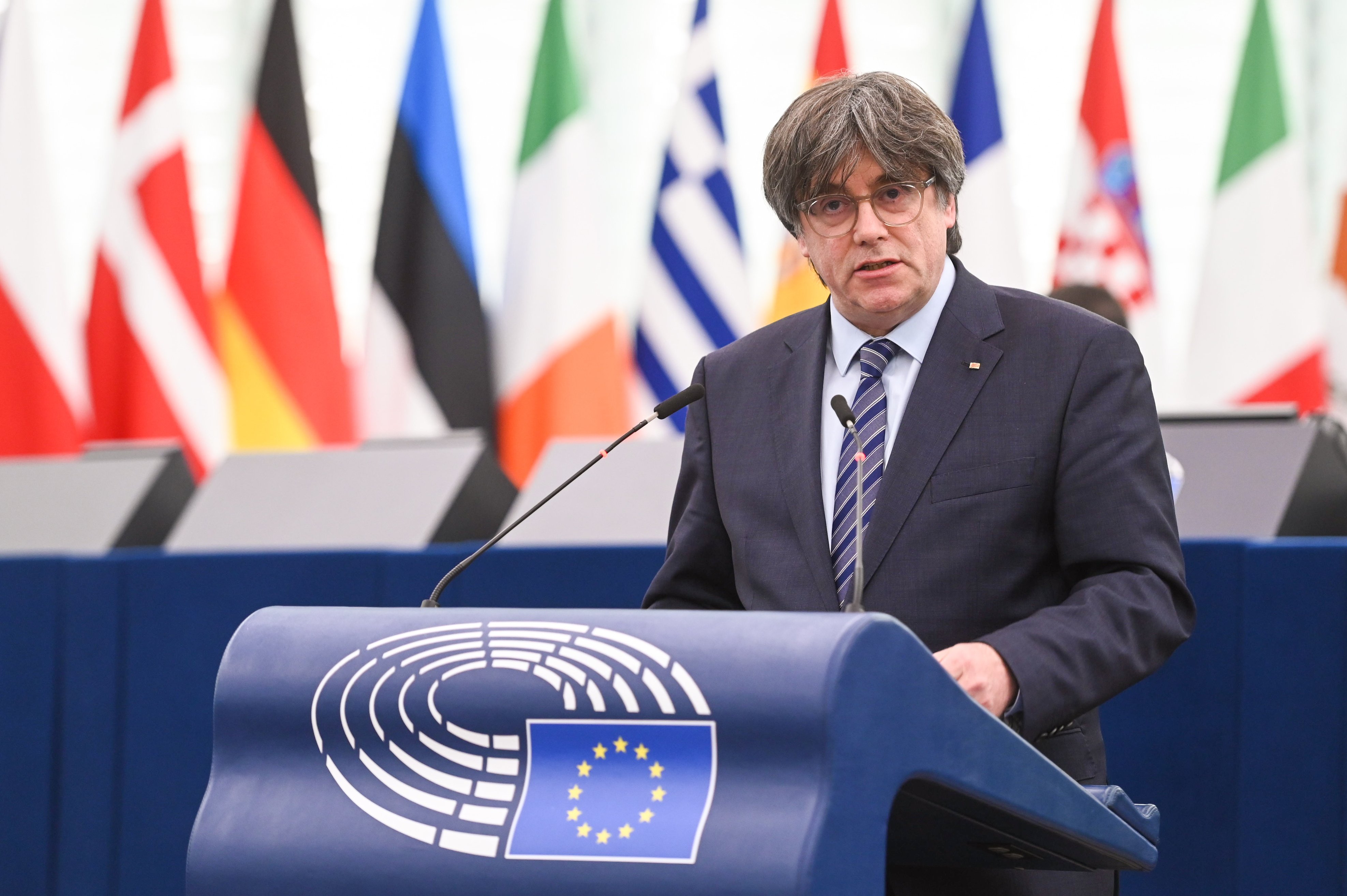A new move in the case against the leaders of the Catalan independence process. The president-in-exile of Catalonia, Carles Puigdemont, has submitted an appeal to the Spanish Supreme Court against the ruling in which the investigating judge, Pablo Llarena, maintains the prosecution against him for the crimes of aggravated misuse of funds and disobedience of the Constitutional Court. In the appeal, Puigdemont demands that the judge's interlocutory be revoked and the Spanish judicial order to search for, arrest and imprison the Catalan MEP be set aside. Also, in anticipation that the appeal is not admitted "entirely and directly", his defence lawyer adds a series of preliminary questions to raise before the European Court of Justice (ECJ) on the immunity of members of the European Parliament and the necessary authorization of that chamber in order to issue such warrants against its members.
In the decision of March 21st, judge Llarena upholds the Spanish state's arrest warrant against Puigdemont, as well as those against Toni Comín and Lluís Puig. It is precisely as a result of this ruling by the judge that Clara Ponsatí was arrested on Tuesday, "only for the purposes of taking her statement for the crime of disobedience".
An improper restriction
Puigdemont's legal team, headed by Gonzalo Boye and Isabel Elbal, demand the lifting of the judge's imposition of an interim measure of provisional imprisonment, given that he is a member of the European Parliament, and warn that the arrest warrants issued by the investigating judge seek an "improper restriction on the right to political representation, in relation to the right to liberty". "This chamber is endorsing arbitrary detentions and systematic violations of the political rights of Catalan political representatives, as indicated by the UN Working Group on Arbitrary Detention and the United Nations Human Rights Committee", it adds.
Puigdemont's appeal reminds the Supreme Court that the EU Treaties impose a "true obligation" to raise the preliminary questions demanded by the defence lawyers and that, in the event of failure to do so, the pro-independence politician will be "once again" deprived of his right to the judge predetermined by law, which in this case is the ECJ.
The text also argues that the changes that have taken place in the Spanish Penal Code, with the repeal of the crime of sedition, also carry with them the obligation to modify the procedural path chosen for the "persecution" of Puigdemont, through the ordinary procedure.
The appeal presented by Puigdemont's defence, 68 pages in length, reiterates the point on the infringement of his right to the ordinary judge predetermined by law and to effective judicial protection and to a due process with all the guarantees; it also repeats the complaint about the lack of impartiality of the investigating judge, Pablo Llarena, as well as the violation of his parliamentary immunity as MEP.

